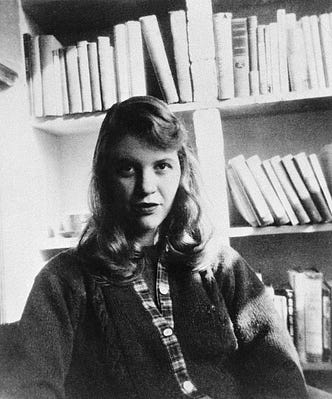|
 |
“In the Distant Past" by Carrie Fountain, from Instant Winner. © Penguin, 2014.
ORIGINAL TEXT AND AUDIO - 2016
It's the birthday of Zadie Smith, born Sadie Smith in London in 1975. She grew up in a working-class suburb with her Jamaican mother and English father. She wanted to be a tap dancer but she decided she wasn't skinny enough; then she wanted to be a jazz singer but she decided she wasn't as good as Aretha Franklin. She said, "Slowly but surely the pen became mightier than the double pick-up timestep with shuffle." So she went back to writing, which she'd always liked anyway. She says she was a badly behaved teenager, but she managed to get into Cambridge. She worked hard on writing fiction in college, and one short story got too long to be a short story, but she didn't like novellas, so she just kept writing and writing and eventually she wrote White Teeth (2001).
She said, "I express myself with my friends and my family. Novels are not about expressing yourself, they're about something beautiful, funny, clever and organic. Self-expression? Go and ring a bell in the yard if you want to express yourself."
It's the birthday of poet Sylvia Plath, born in Boston (1932). She was an excellent student, and she went to Smith College with the help of a scholarship endowed by the writer Olive Higgins Prouty. One summer during college, she was chosen to be a guest editor for Mademoiselle magazine. She was only 20 years old, and she had already been published in Seventeen, Mademoiselle, The Christian Science Monitor, and other newspapers. Her summer started off well. She went to lots of parties and discovered that she loved vodka. But she was having trouble writing poetry and short stories, and she worried that she was a failure as a writer. Then she got notice that she had not been accepted for an advanced creative writing course at Harvard, taught by the writer Frank O'Connor. She was so depressed that she attempted suicide. Her benefactress, Olive Prouty, paid for her stay in a mental hospital and psychiatric care.
Plath returned to Smith and graduated with highest honors in 1955. She won a Fulbright scholarship to study at Cambridge University, and there she met and married the poet Ted Hughes. In 1960, she gave birth to a daughter and published The Colossus, the only book of her poems to be published during her lifetime. It got minor reviews in various British publications. In 1961, she was excited to find an American publisher; she wrote: "After all the fiddlings and discouragements from the little publishers, it is an immense joy to have what I consider THE publisher accept my book for America with such enthusiasm. They 'sincerely doubt a better first volume will be published this year.'" And on the date of its publication in 1962, Plath wrote to her mother: "My book officially comes out in America today. Do clip and send any reviews you see, however bad. Criticism encourages me as much as praise." But The Colossus was even less noticed in America than in England; there were only a handful of reviews, many of them just a paragraph long.
Plath decided to write a novel based on her experience during the summer when she worked at Mademoiselle. She referred to the novel as "a pot-boiler" to family and friends, but she had high hopes for it. She won a fellowship to work on the novel, and the fellowship was connected to the publishers Harper and Row; but once she finished it, the editors there rejected it — they thought it was overwritten and immature. The Bell Jar was published in England in January of 1961 under a pseudonym, Victoria Lucas. It got good reviews, but not great. A month later, Plath committed suicide.
Many people learned about Plath only after her death, reading her poems in obituaries and news stories. In the next couple of years, her poems appeared regularly in magazines like The New Yorker and The Atlantic Monthly. In 1965, a collection of poems called Arielwas published posthumously, and received major reviews in all the big papers and magazines. In Britain, Ariel sold 15,000 copies in its first 10 months, and Plath's popularity continued to rise. The Bell Jar was finally published in the United States and stayed on the New York Times best-seller list for six months.
Sylvia Plath wrote: "Everything in life is writable about if you have the outgoing guts to do it, and the imagination to improvise. The worst enemy to creativity is self-doubt."
Be well, do good work, and keep in touch.®
You’re a free subscriber to The Writer's Almanac with Garrison Keillor. Your financial support is used to maintain these newsletters, websites, and archive. Support can be made through our garrisonkeillor.com store, by check to Prairie Home Productions P.O. Box 2090, Minneapolis, MN 55402, or by clicking the SUBSCRIBE button. This financial support is not tax deductible.

